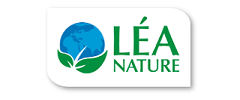Drafting of Ministerial Declaration on Health and Environment for upcoming Ministerial conference in Parma, Italy, 10-12 March 2010
Report by WECF and HEAL on the drafting group meeting in preparation for the Ministerial Meeting in Parma, 10-12 March, 2010
22.06.2009 |Sascha Gabizon, WECF & Genon Jensen, HEAL

In preparation of the upcoming conference of the ministers of health and environment of 53 countries in the WHO Europe region, which will take place from 10-12 of March 2010 in Parma, Italy, a drafting group worked on the ministerial declaration for that conference.
20 representatives of member states, 1 business and 2 NGO representatives (ECO-FORUM-WECF and HEAL) took part in the drafting group for the PARMA 2010 ministerial declaration on health and environment, at a 2 day meeting in Andorra.
The representatives of the environmental and health organisations, Sascha Gabizon of WECF and Genon Jensen of HEAL, were able to comment on the draft text and to propose changes, which were then either supported or rejected by the member state representatives present at the meeting. Below the key parts of the declaration are given in which input was provided.
The declaration focuses on key environmental health issues of our time, including the effects from climate change, from the economic crisis and increasing inequalities, from emerging issues such as nanotechnology, and hormone disrupting chemicals and from continuing challenges such as lack of safe water, sanitation and hygiene, injuries and accidents as a main cause of child mortality, indoor and outdoor air pollution, and exposure to hazardous substances such as asbestos, and carcinogens, persistent and bio-accumulative chemicals.
The first part of the declaration focuses on the challenges, identifying the challenge of cooperation between the health and environment sectors, and with other stakeholders, the challenge of economic rescue packages having negative effects on health and environment, the challenge of finding resource for adaptation measures for climate change, and the challenge of emerging issues, the lack of resources to asses the, potential great, risks to humanity, and low ability to apply the precautionary principle through legal instruments.
The second part focuses on the commitments of the ministers and WHO (which holds the secretariat for this process), to advocate for economic and financial policies which focus on sustainable investments in health promoting, environmental friendly products and services, leveraging the opportunities for greening the economy, creating decent and healthy jobs, as well as focussing on legislation based on the principles of prevention, precaution and the polluter pays.
The commitments of the ministers also focus on the implementation of the Children Environmental Health Action Plan for Europe (CEHAPE), which was adopted in Budapest in 2004, and its 4 Regional Priority Goals (RPG). A major achievement in the draft declaration is the inclusion of targets for each section:
• RPGI: Under the first goal, which focuses on reducing health effects from lack of safe water, sanitation and hygiene, the declaration includes the target to achieve safe access by 2015 for all schools, day-care centers and kindergartens.
• RPGII: Under the second goal, the declaration includes the target to achieve green spaces and safe walking and bicycling paths for school and kindergarten children by 2020.
• RPGII: Under the third goal, which aims at reducing health effects from air pollution, the declaration includes the goal to achieve safe indoor air, including a tobacco free environment, in schools and kindergartens by 2020,
• RPGIV: Under the fourth goal, which focuses on reducing health impacts from chemicals, radiation and biological stressors, the declaration includes 2 targets, one to halt the use of building materials and products containing the carcinogenic chrysotile asbestos by 2020, and one to halt exposure to hazardous chemicals in schools, kindergartens and playgrounds, by 2020.
Commitments are also taken in the area of climate change and preventive health measures and response measures, in the area of reducing the science-policy gap, in human biomonitoring, and in involving other stakeholders.
In the final part of the declaration, which focuses on the future of the process, WECF and EcoForum would like to see reference to bringing the CEHAPE to a global level, inviting countries from outside the European region to develop a protocol on childrens environmental health onto the convention on the right of the child.
The new version of the declaration will be send to all 53 member states of the WHO Europe region for comments till the end of the summer holidays, after which probably still one drafting meeting will need to take place, to eliminate the remaining brackets in the document.
For further information contact: Sascha.gabizon@wecf.eu
or Genon Jensen at: genon@env-health.org
For the European Eco Forum and HEAL
Related News
Meet the Winners of the Gender Just Climate Solutions Award at COP24
On the 70th anniversary of the Universal Declaration of Human Rights, we awarded Gender Just Climate Solutions Winners at the climate negotiations in Katowice, Poland
11.12.2018
Invitation: Gender Just Climate Solutions Award 2018
10 December, COP24 Katowice
04.12.2018
Getting to the Future We Want
4-7 November, Brussels: European Environmental Bureau’s (EEB) Annual Conference
12.11.2018
GoodFood4All
WECF and partners all over Europe start GoodFood4All Campaign
06.11.2018
#Ruralwomen: join our Women2030 campaign!
15.10.2018






































